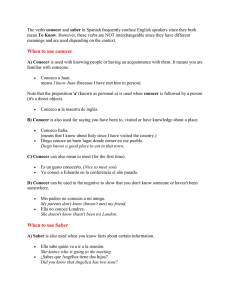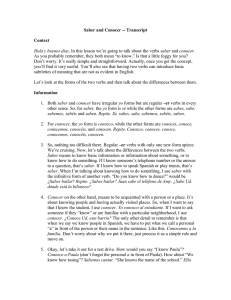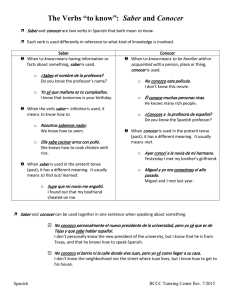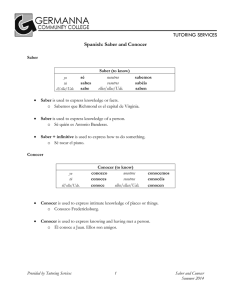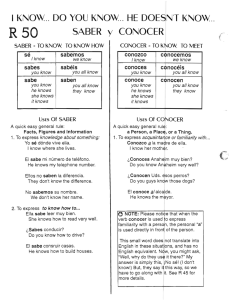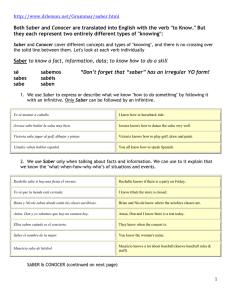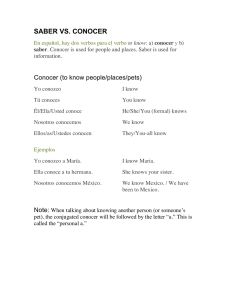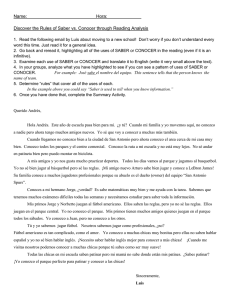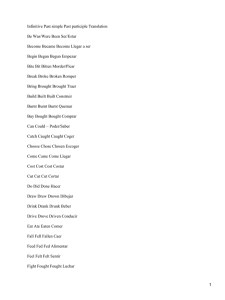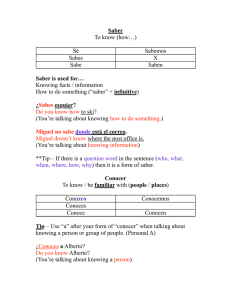Saber vs. Conocer
Anuncio
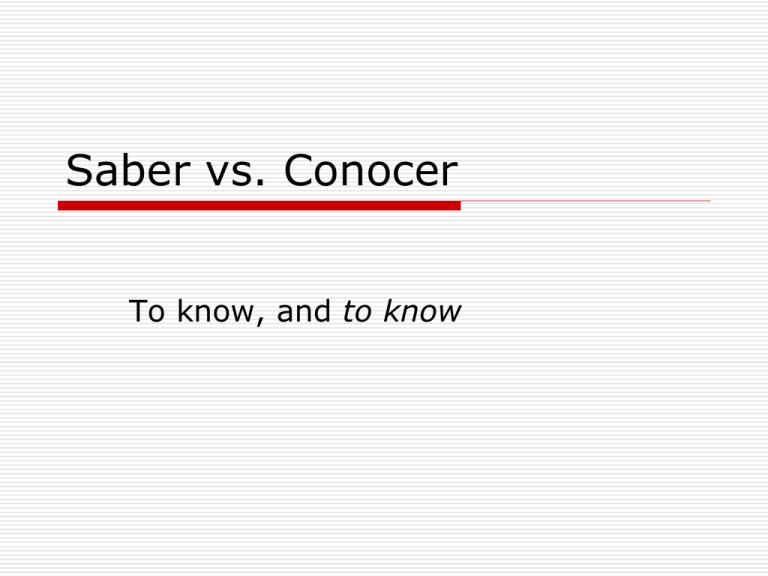
Saber vs. Conocer To know, and to know Saber y Conocer Both mean “to know” in Spanish. They are each used in distinctive ways. Before we start let’s talk about the conjugations of each verb in the present indicative. SABER Yo sé Nosotros sabemos Tú sabes Vosotros sabéis Él/Ella, Ud. sabe Ellos/as, Uds. saben Means “to know” Is an –ER verb Has an irregular “yo” form CONOCER yo conozco Nosotros conocemos Tú conoces Vosotros conocéis Él/Ella, Ud. conoce Ellos/as, Uds. conocen Means “to know” Is an –ER verb Has an irregular “yo” form Use of SABER - #1 SABER + infinitive= to know how to do an activity Claudia sabe esquiar. Claudia knows how to ski. Juan Carlos sabe cocinar muy bien Juan Carlos knows how to cook very well. Use of SABER - #2 SABER + factual information= to know something (by heart) Teresa sabe el número de teléfono de Vicente. Teresa knows Vicente´s phone number. ¿Sabes dónde está el Parque Central? Do you know where Central Park is? ¿Sabes quién es Cameron Díaz? Do you know who Cameron Díaz is? *In this case can you identify her persona, but not necessarily that you have personally met her. SABER & Interrogatives SABER is used a lot with question words. ¿Sabes ¿Sabes ¿Sabes ¿Sabes ¿Sabes ¿Sabes dónde…? Do you know where? cuál…? Do you know which? cuándo …? Do you know when? cuánto …? Do you know how much? por qué…? Do you know why? qué? Do you know what? Use of Conocer - #1 CONOCER + a + person= to know a person (personally) Claudia conoce al tío de Teresa. Claudia know Teresa´s uncle. (She has met him.) ¿Conoces a Marisel? Do you know Marisel? (Have you met her?) Use of CONOCER - #2 CONOCER + place/thing= to be familiar with places and things Teresa no conoce Buenos Aires. Teresa doesn’t know Buenos Aires. ¿Conoces el libro Cien años de soledad por García Márquez? Do you know (are you familiar with) the book One Hundred Years of Solitude, by García Márquez? Summary Both mean “to know” Both have irregular “yo” forms Only CONOCER takes the personal “a” CONOCER is CLOSER!
